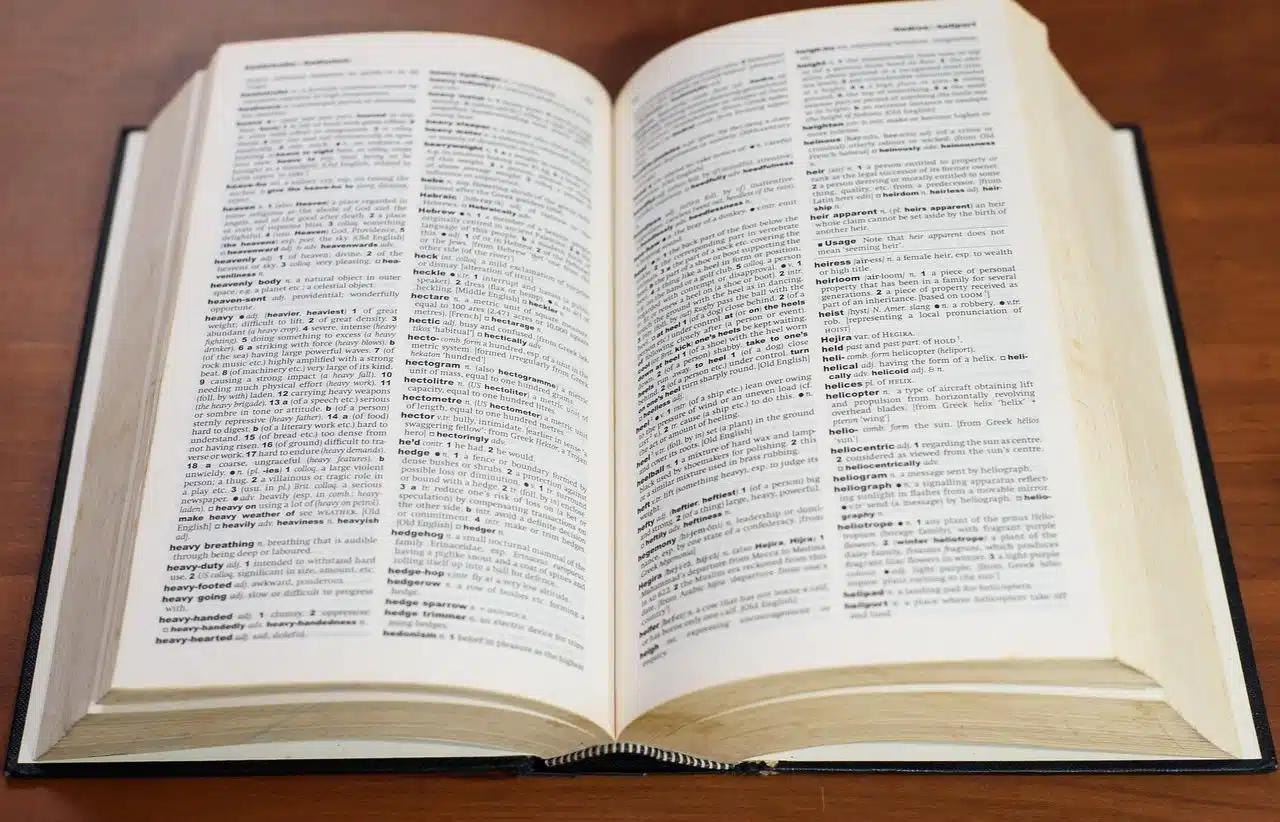
A thesaurus is an index, catalog or anthology.
Thesaurus is a notion that comes from the Latin word thesaurus , although its most distant etymological origin is found in Greek. The concept refers to a treasure , taking into account its meaning as an anthology , a catalog or an index .
A thesaurus can be a list that presents the terms used to represent certain content . Its purpose is to contribute to the normalization of terms; In this way, understanding and communication are facilitated.
Thesauri, in this sense, contribute to building the link between people and archives or libraries. Thesaurus terms can be linked to each other in an associative, equivalent or hierarchical way.
Elements that are part of a thesaurus
In this way, in the thesauri you can find a list of the preferred terms (ordered hierarchically, thematically and alphabetically), a list of descriptors (synonyms of the preferred terms), the relationships between said terms and, finally, the definitions of these terms. In addition, thesauri usually include rules for their use.
In the field of literature , the thesaurus usually takes the form of a list of terms whose meanings are similar. The antonyms of these terms are also presented. Thesauri, in these cases, usually focus on certain fields of knowledge.

A thesaurus can be likened to a dictionary.
Some examples
An example of this concept can be seen in the UNESCO Thesaurus . It includes the terms that should be used to search for publications and documents and to carry out thematic analysis. This thesaurus contains thousands of terms in different languages , including Spanish .
We can also understand the term thesaurus as a synonym for dictionary , something that occurs with the work of the Spanish scholar Sebastián de Covarrubias "Treasure of the Castilian or Spanish language" , which was published in 1611 . It is curious that today this book represents a true treasure in more ways than one, since it is the first monolingual dictionary of our language, meaning that never before had one been published in which the definitions were also presented in Spanish. On the other hand, it was also the first European dictionary focused on a vulgar (or popular , which was spoken at that time) language .
Covarrubias ' central idea was to create an etymology dictionary that would delve into the origin of the words of our language , and was based on the " Etymologies" of Isidore of Seville , a work that focused on Latin. Just like the latter, Covarrubias started from the idea that the form of a word is related to its original meaning, which is why to find it it is necessary to carry out a deep investigation of its etymology . Unfortunately, the author feared that he would not complete his thesaurus, given his age at the beginning of the project, so he decided to reduce the length of the vast majority of the articles.
Consult a thesaurus
Consulting a thesaurus is a truly fascinating activity, especially for language lovers, although it invites anyone to immerse themselves in the depths of knowledge in an entertaining and surprising way. The objective of this type of works is to help the reader better express their ideas through the suggestion of synonyms or related terms in a more dynamic and easier to navigate way than a common dictionary.
Within a printed thesaurus we can find more than one section: for example, in one the terms may be arranged alphabetically, while in another they may be grouped by topic . In the case of interactive digital thesauri, there are very attractive and dynamic designs that allow us to navigate the immense network of terms with simple mouse movements.
